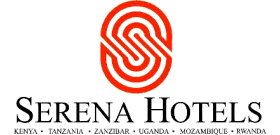 Kenya: Serena Hotels Camps retain Eco-Tourism Gold certification
Kenya: Serena Hotels Camps retain Eco-Tourism Gold certification
The Serena Hotels’ Camp portfolio in Kenya that includes, Sweetwaters Serena Camp and Lake Elmenteita Serena Camp have retained their Gold Eco-Rating Certification by the Eco-Tourism Society of Kenya since year 2013 and 2015 respectively. The Certification program is recognized by the Global Sustainable Tourism Council since 2016 and is at the same level with other international standards across the globe.
Sweetwaters Serena Camp and Lake Elmenteita Serena Camp went through an in-depth biennial on-site audit that resulted in the Gold Eco-rating Certification. A ‘Gold Eco-rating’ is awarded to facilities that have shown innovation in responsible resource use, environmental conservation, community empowerment, cultural preservation and promotion and holistic business practices.
Some of the notable projects both Camps were commended for but not limited to includes:
Trees planted by our guests, staff and the local community school children. Both camps have their own seedling nursery with efforts focused on reforestation while in the recent past, on agroforestry which includes the planting of fruit and herb trees. Whilst contributing towards reducing our carbon footprint, it is hoped that this will enhance food security in the long run.
Has made conscious efforts to reduce ‘single-use plastic’ through initiatives such as: transitioning to a replenishable large format of guest amenities that replaces the traditional single-use miniature bottled shampoo, shower gel and lotion; elimination of plastic straws; and transitioning to the use of glass mineral water bottles from single-use plastic mineral water bottles.
Lake Elmenteita Serena and Sweetwaters Serena both run on a grid-tied solar system and have solar water heating systems.
Supports and empowers the local community through the provision of employment, training, internships, priority towards sourcing of fresh food produce, sale of artefacts and handicrafts from the local community groups at the gift shops amongst others.
Water conservation is achieved through efficient laundry and kitchen washing process formulations and wastewater recycling. Treated effluent water is re-used for irrigation and the excess effluent is let back into the environment.
